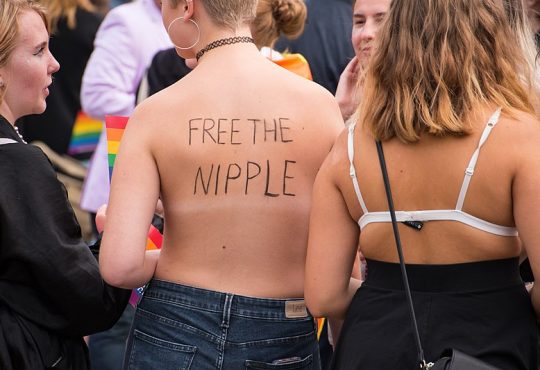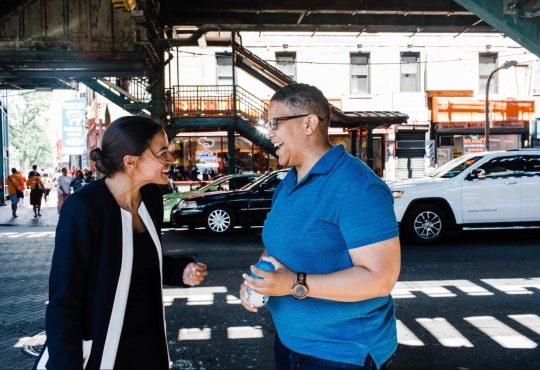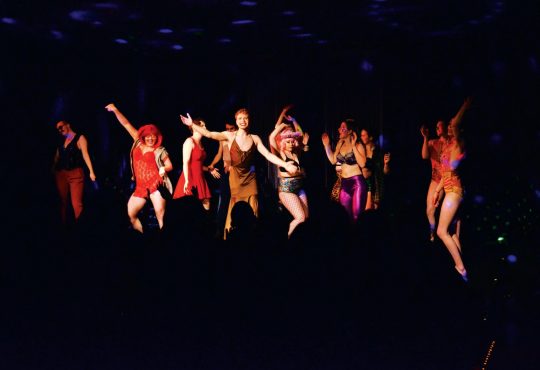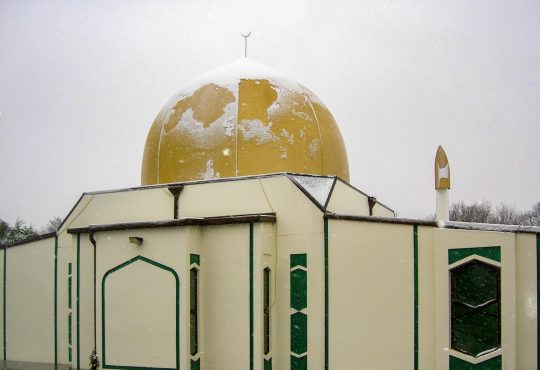“I only want to be a spirit, a genie of gender, a body that is born again with each sunrise.” For poet, activist and self described “gender genie” Kavi Ade, this is what it means to be black, queer and trans: to be as limitless as you are liminal, to be a site of both creation and destruction.
On Friday, April 14 in the Rasmussen Rotunda, the Center for Cultural and Civic Engagement (CICE) brought spoken word poet Ade to campus for a night of poetry and conversation. Ade described their work as “a lamentation, a leaning in to what haunts the spirit of a black, trans and queer body.”
But more than lamentation, Ade’s work is just as much an exploration of what it means to occupy the spaces between binaries. Whether these be the spaces between man and woman, hate and love, or the personal and political, Ade’s work picks apart our societal expectations on every level and puts them back together in a beautiful mosaic vision of what a person — and a society — can be.
“My work deals a lot with systemic violence and interpersonal violence and the ways those two things converge at the meaning points of my identity,” Ade said. In this way, all of Ade’s work is not just about intersectionality, but depends on it. No one piece, whether it be a eulogy for their 91-year-old grandmother, or a chilling account of childhood trauma, examines identity in isolation.
In fact, Ade’s poetry has evolved as their identity has over time. “I would say my work has always been very therapeutic and helped me process things happening in my life,” Ade said. Because Ade grew up in an extremely religiously conservative family, their poetry began as a space where they could express their inner self while still occupying such a hostile environment.
“In high school it started to be about queerness. I realized I was queer when I was like 15, but I was in such a homophobic space and in a family that was homophobic. … I was grappling with my mother’s religion and my sexuality,” Ade said.
Their poetry continued to shift as they came to rediscover themselves as a trans and non-binary person. “After high school is when I realized I was trans so then it became a lot about trans-ness. Because like blackness — I’d been black my whole life, so I didn’t really think about it the same way,” they said.
It wasn’t until Ade got to college that they experienced what they called their “political awakening” as a person of color. “I really think because I grew up in Philly — Philly is like 47 percent black and also heavily non-black P.O.C. So going to college was its own culture shock,” they said. It wasn’t until Ade had to navigate a majority white space that they began to understand the broader implications of race in America.
“When I was a sophomore, I went to a school in California for a semester and it was the semester that Trayvon Martin was murdered. And to be there at this prestigious-ass liberal arts university, surrounded by white folks wearing t-shirts that say ‘Stop Kony 2012’ and no one is talking about Trayvon Martin, it was like … I don’t even know how to describe it. I was just so deeply depressed and I just had to find something.”
For Ade, that something was moving back to Philadelphia and becoming a community organizer. Specializing in youth activism, Ade began coaching for the city’s local youth slam poetry team. “It was phenomenal. I worked with some really amazing young poets and just like saw them do incredible things,” they said.
But now, as the political situation in America is growing less hopeful and the news begins to take a toll on their mental health, Ade is taking a step back. This was their second to last stop on what will be their last tour in the foreseeable future, before they move to Lisbon, Portugal with their partner.
“My wife is Arab and Muslim and so we’ve been basically — for the last few years, trying to figure out somewhere we can live in the world that’s not violently anti-black and violently Islamophobic, because we have to navigate all of our identities. … So yeah, I’m giving America a break. I’m giving myself a break from America,” Ade said.
But no matter where Ade’s life takes them, their poetry will undoubtedly continue to inspire and move those around them. Their performance last Friday was a pristine balancing act of grief, hope, anger and love, one we can surely all learn from in these trying times.






